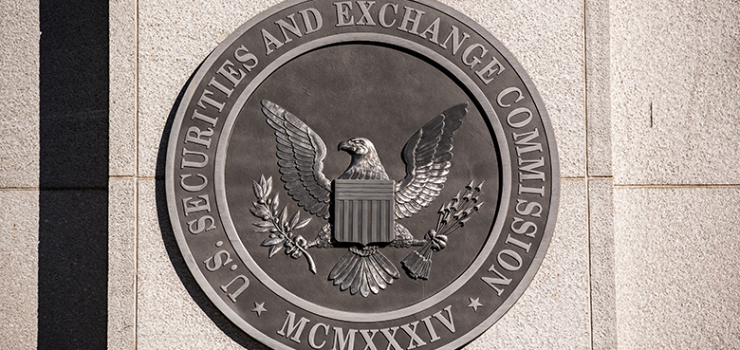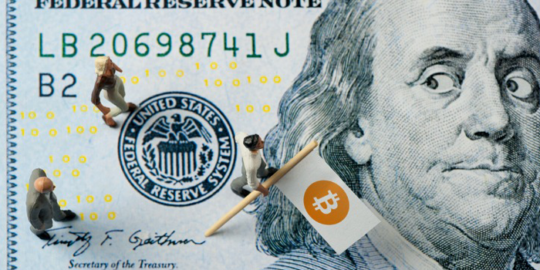During a Wall Street Unplugged segment a few weeks ago, Frank and I discussed the elephant in the room for the crypto industry… regulation.
U.S. cryptocurrency exchange Coinbase (COIN) was the focus of our conversation. Coinbase recently took the unusual step of reaching out to the Securities and Exchange Commission (SEC) about a new program it was working on called “Lend.” The Lend program allows investors to earn interest on certain cryptocurrencies they own.
In short, Coinbase was trying to be proactive and transparent. In theory, the company was trying to work with regulators (not against them).
Keep in mind, this kind of interest program isn’t new in the crypto world. Gemini—the major crypto exchange started by the billionaire Winklevoss twins—already offers a similar program to its customers, giving them the ability to earn interest on their cryptocurrencies.
But instead of welcoming Coinbase’s efforts, the SEC turned aggressive…
The regulator said it would sue Coinbase if it launched its Lend program.
This prompted Coinbase CEO Brian Armstrong to launch a tweet storm airing his frustration with the SEC. He railed at the SEC’s response, especially since the regulator refused to clarify the reasoning behind its proposed litigation.
It’s not smart to publicly criticize a government agency, especially one as powerful as the SEC. But I have to admit… I respect Armstrong’s fight.
The SEC has a long history of getting in the way of business.
During our conversation on the podcast, Frank shares a personal story about his father’s fight with the SEC years ago… illustrating how ridiculous and frustrating it can be to deal with the agency.
The current Coinbase situation shows how the SEC is still creating unnecessary headaches for businesses. The SEC’s threats (and the expensive multi-year legal battle that would result) caused Coinbase to cancel its Lend program two weeks ago.
The bottom line is this: The SEC is dragging its feet on crypto regulation.
Coinbase ran into problems because regulators are still unclear on whether cryptocurrencies count as securities. But it’s not difficult to clarify which cryptocurrencies are securities and which ones aren’t.
The only reason for the vague language and threats is to protect those in power—including the big banks.
On the podcast, Frank and I discussed how the investment banking business is one of the only areas of finance to not be disrupted over the years… until now.
Investment banks are simply “middle men.” Companies that need capital need these banks to get linked up with investors. For this, investment banks generate huge fees and get a piece of the investment… while taking nearly zero risk.
If you’re part of the inner circle, life is good. You can rinse and repeat this process and make billions of dollars over many years.
For the sake of progress, the SEC should clarify its stance on cryptocurrencies immediately. The sooner it does that, the sooner everyone can understand (and follow) the rules. Plus, investors need to know if a crypto platform is safe for trading. If a platform or exchange robs investors (or does something similarly shady), they need to be shut down and/or fined.
But the Coinbase story shows there’s still a big problem with the current regulatory situation. Coinbase is trying to help take crypto mainstream… while working with regulators. But the company was punished for its efforts.
Clear regulations would be a boon for the crypto industry. Plenty of big players and institutions are already getting involved in crypto despite hazy rules. I’m talking about investment banks like Goldman Sachs and JPMorgan Chase, Morgan Stanley, hedge funds, and even insurance giants like MassMutual. These companies don’t want to miss a once-in-a-lifetime opportunity.
Unfortunately, I don’t expect clarification on regulations anytime this year. But the irony is, the longer it takes for the SEC to get off its a**, the more it’s going to stoke a fire in anti-central government crypto diehards… and those fed up with the increasingly low purchasing power of the dollar.
For more details on our discussion… along with other entertaining commentary on today’s market, check out our Wall Street Unplugged segment here.
Daniel Creech is a Curzio Research analyst with over a
decade of experience. He writes on macro trends, large- and small-cap stocks, and
digital securities. He’s a regular contributor to Token Tracker, Curzio Research Advisory, and The Dollar Stock Club.
Daniel Creech is a Curzio Research analyst with over a
decade of experience. He writes on macro trends, large- and small-cap stocks, and
digital securities. He’s a regular contributor to Token Tracker, Curzio Research Advisory, and The Dollar Stock Club.










During a Wall Street Unplugged segment a few weeks ago, Frank and I discussed the elephant in the room for the crypto industry… regulation.
U.S. cryptocurrency exchange Coinbase (COIN) was the focus of our conversation. Coinbase recently took the unusual step of reaching out to the Securities and Exchange Commission (SEC) about a new program it was working on called “Lend.” The Lend program allows investors to earn interest on certain cryptocurrencies they own.
In short, Coinbase was trying to be proactive and transparent. In theory, the company was trying to work with regulators (not against them).
Keep in mind, this kind of interest program isn’t new in the crypto world. Gemini—the major crypto exchange started by the billionaire Winklevoss twins—already offers a similar program to its customers, giving them the ability to earn interest on their cryptocurrencies.
But instead of welcoming Coinbase’s efforts, the SEC turned aggressive…
The regulator said it would sue Coinbase if it launched its Lend program.
This prompted Coinbase CEO Brian Armstrong to launch a tweet storm airing his frustration with the SEC. He railed at the SEC’s response, especially since the regulator refused to clarify the reasoning behind its proposed litigation.
It’s not smart to publicly criticize a government agency, especially one as powerful as the SEC. But I have to admit… I respect Armstrong’s fight.
The SEC has a long history of getting in the way of business.
During our conversation on the podcast, Frank shares a personal story about his father’s fight with the SEC years ago… illustrating how ridiculous and frustrating it can be to deal with the agency.
The current Coinbase situation shows how the SEC is still creating unnecessary headaches for businesses. The SEC’s threats (and the expensive multi-year legal battle that would result) caused Coinbase to cancel its Lend program two weeks ago.
The bottom line is this: The SEC is dragging its feet on crypto regulation.
Coinbase ran into problems because regulators are still unclear on whether cryptocurrencies count as securities. But it’s not difficult to clarify which cryptocurrencies are securities and which ones aren’t.
The only reason for the vague language and threats is to protect those in power—including the big banks.
On the podcast, Frank and I discussed how the investment banking business is one of the only areas of finance to not be disrupted over the years… until now.
Investment banks are simply “middle men.” Companies that need capital need these banks to get linked up with investors. For this, investment banks generate huge fees and get a piece of the investment… while taking nearly zero risk.
If you’re part of the inner circle, life is good. You can rinse and repeat this process and make billions of dollars over many years.
For the sake of progress, the SEC should clarify its stance on cryptocurrencies immediately. The sooner it does that, the sooner everyone can understand (and follow) the rules. Plus, investors need to know if a crypto platform is safe for trading. If a platform or exchange robs investors (or does something similarly shady), they need to be shut down and/or fined.
But the Coinbase story shows there’s still a big problem with the current regulatory situation. Coinbase is trying to help take crypto mainstream… while working with regulators. But the company was punished for its efforts.
Clear regulations would be a boon for the crypto industry. Plenty of big players and institutions are already getting involved in crypto despite hazy rules. I’m talking about investment banks like Goldman Sachs and JPMorgan Chase, Morgan Stanley, hedge funds, and even insurance giants like MassMutual. These companies don’t want to miss a once-in-a-lifetime opportunity.
Unfortunately, I don’t expect clarification on regulations anytime this year. But the irony is, the longer it takes for the SEC to get off its a**, the more it’s going to stoke a fire in anti-central government crypto diehards… and those fed up with the increasingly low purchasing power of the dollar.
For more details on our discussion… along with other entertaining commentary on today’s market, check out our Wall Street Unplugged segment here.